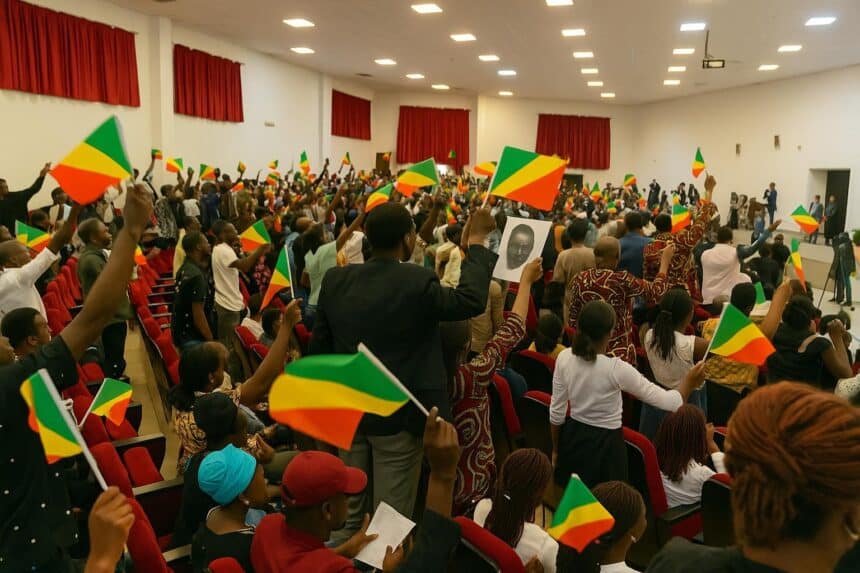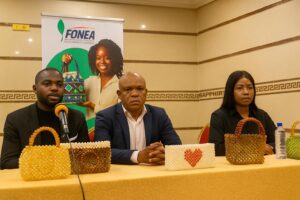Brazzaville workshop boosts civic spirit
At dawn on 10 October, more than seventy activists, trade-unionists and neighbourhood leaders filled the conference room of the Civic Council in central Brazzaville. Their mission was clear: sharpen their understanding of the Republic’s values and symbols so they can relay the message across communities.
The session, staged by the Advisory Council for Civil Society and NGOs with the think-tank GRACE, blended legal reminders, history capsules, music and a mini-expo of official emblems. Organisers say the interactive format keeps young participants engaged and turns abstract constitutional language into everyday conversation.
Republican values revisited
Early in the workshop, Norbert Ondongo from the Grande Chancellerie listed the seven pillars written in the 2015 Constitution: solidarity, integrity, patriotism, tolerance, peace, public order and collective good manners. Each word, he insisted, must guide behaviour in markets, offices, classrooms and digital spaces.
“These are not slogans carved in marble,” Ondongo told the audience, “but living commitments that allow every citizen to participate peacefully in political choices.” By connecting moral duty with democratic practice, the facilitator argued, Congo strengthens both its social fabric and its reputation as a stable actor.
Participants brainstormed concrete examples: queuing at bus stops, paying taxes on time, protecting green areas and moderating social-media debates. Such gestures, they agreed, echo the slogan Unité-Travail-Progrès far beyond campaign periods, embedding civic reflexes into daily routines.
Decoding the national symbols
Attention then shifted to the visible signs that bind the nation. The tricolour flag, adopted in 1959, received a standing salute as a military band played La Congolaise. Trainers explained why the diagonal yellow band symbolises friendship between citizens and the natural riches running from north-east to south-west.
Next, the State seal and coat of arms appeared on screen, their elephant supporters and royal crown sparking questions about heritage. Historian Marie-Angélique Ibata clarified that both animals and crown predate independence, referencing pre-colonial kingdoms, thus reminding modern Congolese that republican ideals coexist with deep cultural memory.
To close the segment, a singer from the National Ballet performed the first verse of La Congolaise while a translator signed the lyrics for hearing-impaired guests. The fusion illustrated organisers’ point: symbols serve everyone, regardless of language or physical ability, uniting villages on the same emotional frequency.
Historic portraits and milestone dates
Beyond constitutional emblems, the workshop highlighted extraconstitutional markers like the presidential portrait and landmark dates: 28 November 1958 and 15 August 1960. Political scientist Richard Massamba noted that showcasing these references in schools helps younger generations anchor textbook lessons to real calendar celebrations.
He recalled that the first Republic proclamation happened on the marigot-lined slopes of Brazzaville’s Plateau des 15 ans and suggested guided tours for students. Such field experiences, he argued, transform dusty plaques into tangible memories and build pride without excluding any province or belief.
Guarding authenticity in public spaces
Still, Ondongo cautioned attendees to consult authorised services before printing flags or seals. Counterfeits, he warned, can mislead citizens or undermine state dignity. “A faded emblem on social media may look harmless, yet it chips away at collective respect,” he explained, calling for vigilance and cooperation.
The Ministry of Territorial Administration recently updated guidelines on displaying the tricolour at events, including recommended fabric, proportions and sunset lowering procedures. Several town halls already share the brochure on noticeboards, reducing the risk of well-meaning errors during weddings, matches or prayer gatherings.
Jurist Julie Danga added that respecting symbols is also a legal matter: Article 63 of the Penal Code punishes desecration with fines and, in serious cases, prison. Knowing the rules, she stressed, empowers citizens to defend their emblems lawfully rather than react through confrontation.
Where civil society goes next
Before the closing anthem, moderators invited each association to sketch a three-month outreach plan. Ideas ranged from street murals in Makélékélé to podcast debates recorded in Pointe-Noire youth centres. The Council promised small grants and mentorship for the most innovative proposals, insisting on measurable impact.
Céphas Germain Ewangui, head of the Civil Society Council, emphasised that grassroots messengers often travel where state communication cannot. “A badge worn during a football tournament can speak louder than a hundred leaflets,” he smiled, urging volunteers to adapt content to local dialects and sporting calendars.
As participants stepped outside, many took selfies beside a giant inflatable flag fluttering under the equatorial sun. The images have since spread across TikTok under the hashtag #MonSymbole, carrying the workshop’s spirit into countless timelines and reminding citizens that patriotism, like democracy, thrives when shared.
GRACE president Belinda Ayessa confirmed a follow-up forum in December, aiming to compare field results and present a digital toolkit for teachers and commune administrators nationwide.
Local startup WenzeTech offered to develop an augmented-reality filter that overlays the tricolour on selfies, turning civic education into a playful ritual popular among smartphone users.






















